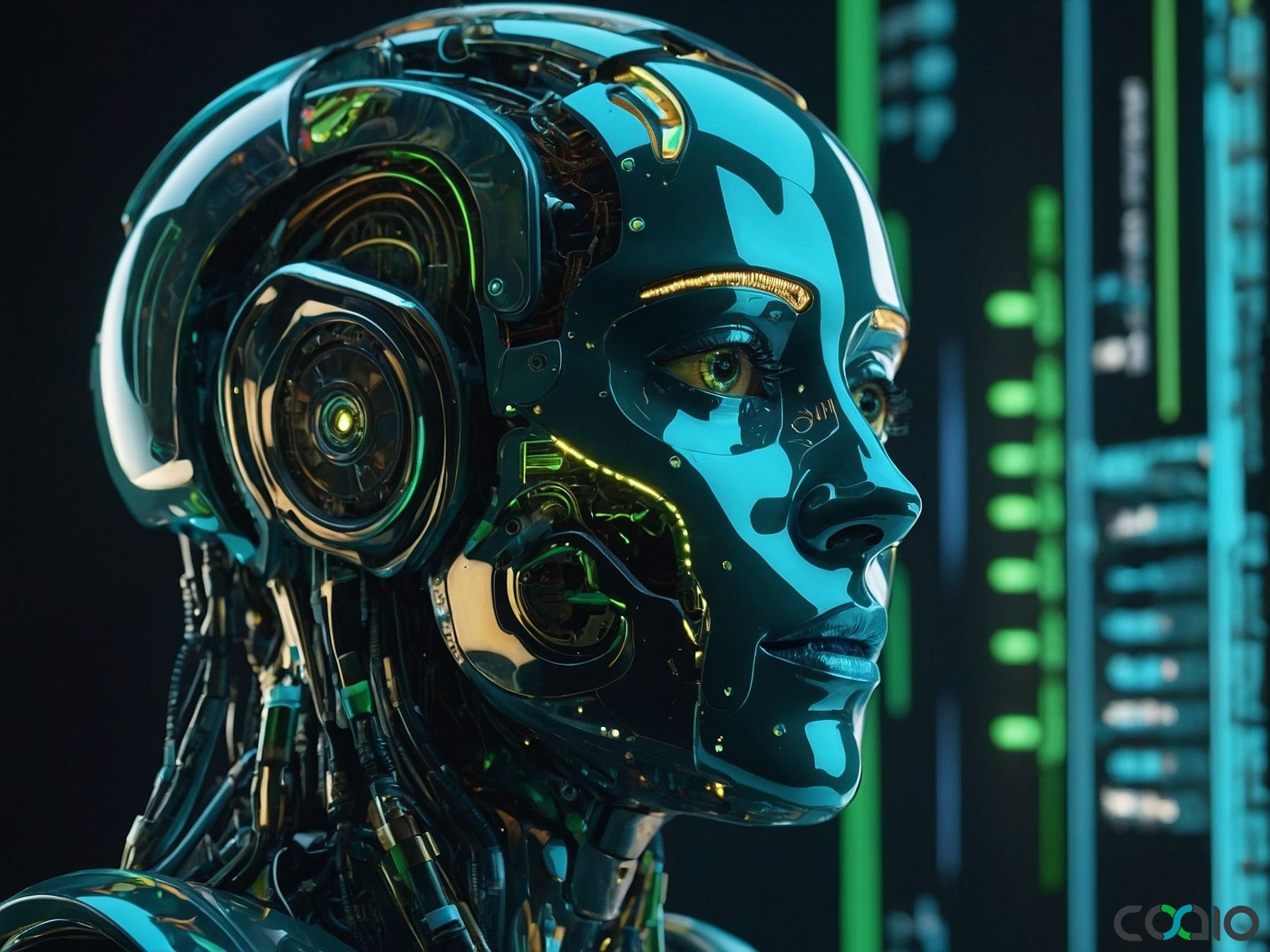
Revolutionizing Software Development: Key Trends Shaping 2025 and Beyond
As of November 11, 2025, the software development landscape is buzzing with innovation, challenges, and transformative shifts that are empowering non-technical users and reshaping how developers work. From the rise of accessible coding tools to advancements in AI integration and regulatory changes in app ecosystems, today’s headlines highlight a sector that’s evolving at breakneck speed. This article dives into the latest developments, drawing from recent reports that underscore the democratization of development, the integration of cutting-edge AI, and the ongoing debates around technology’s overhyped elements. We’ll explore how these trends could influence the future, with a nod to efficient strategies for bringing ideas to life.
The Rise of Vibe Coding and Citizen Development
Vibe coding, a burgeoning trend that’s gained significant traction over the past year, is redefining who can participate in software creation. According to a recent article from SD Times, vibe coding extends the legacy of low-code platforms by making software development even more intuitive for those without traditional coding expertise. It’s not just a fad for hobbyists; it’s evolving into a serious tool for businesses looking to innovate quickly. The concept allows users to prototype and build applications through intuitive, visual interfaces that mimic natural interactions, much like dragging and dropping elements in a design tool.
This shift is particularly exciting for startups and growth-stage companies aiming to accelerate their product development cycles. For instance, the SD Times piece explains how vibe coding democratizes access to software creation, enabling “citizen developers”—non-experts within organizations—to contribute meaningfully without needing a full development team Read more. This could mean faster iterations and reduced costs, as teams bypass some of the complexities associated with traditional coding. Imagine a marketing professional building a custom analytics dashboard or a small business owner creating an e-commerce plugin—all without writing a line of code. The implications are vast, potentially lowering barriers to entry in tech and fostering a more inclusive industry.
However, as with any innovation, there are risks. Vibe coding might oversimplify complex systems, leading to security vulnerabilities or scalability issues if not managed properly. Developers and businesses must balance this accessibility with robust oversight, ensuring that the tools align with best practices. This trend ties into broader discussions about efficient software outsourcing, where streamlined processes can help teams focus on core ideas rather than getting bogged down in technical details.
AI Integration in Software Development: Dataminr’s Latest Move
Artificial intelligence continues to be a game-changer in software development, with companies rolling out tools that make AI integration more straightforward. A standout announcement comes from Dataminr, which recently launched a new Developer Portal and an enhanced Software Development Kit (SDK). This platform serves as a centralized hub for developers, offering resources to seamlessly incorporate AI-powered real-time intelligence for event, threat, and risk management into their applications.
As detailed in the SD Times report, Dataminr’s tools empower developers to access advanced AI capabilities without starting from scratch, which is crucial in an era where real-time data processing is essential for applications like fraud detection or emergency response systems Read more. For software teams, this means quicker deployment of intelligent features, reducing the time and expertise needed for complex integrations. It’s a prime example of how AI is making development more efficient, allowing even smaller firms to compete with tech giants.
This development highlights the growing demand for user-friendly AI tools, especially as businesses seek to enhance their software with predictive analytics and automated decision-making. By streamlining the integration process, Dataminr is addressing a key pain point for developers: the steep learning curve associated with AI technologies. In a world where data-driven insights are paramount, such innovations could lead to more resilient and adaptive software solutions.
Regulatory Shifts: Google’s Settlement with Epic Games and Its Impact on Android Developers
The world of mobile app development is undergoing significant regulatory scrutiny, as evidenced by Google’s recent settlement with Epic Games. This five-year legal battle, stemming from Epic’s allegations of antitrust violations in Google’s Play Store, has culminated in changes that could reshape how Android developers operate. Epic Games, known for its hit title Fortnite, accused Google of maintaining an unfair monopoly by imposing a 30% revenue cut on app transactions.
According to SD Times, the settlement may result in more flexible policies for Android developers, potentially allowing alternative payment systems and reduced fees Read more. This is a pivotal moment for the industry, as it addresses long-standing grievances about app store dominance and could lead to a more competitive ecosystem. Developers might soon have greater freedom to distribute apps and process payments outside of Google’s framework, fostering innovation and potentially lowering costs for users.
For the broader software development community, this ruling underscores the importance of fair practices in digital marketplaces. It could encourage other platforms to reevaluate their policies, benefiting developers by promoting healthier competition. However, it also raises questions about how these changes will be implemented and whether they might introduce new complexities, such as varying security standards across distribution channels. As the dust settles, developers will need to adapt quickly to capitalize on these opportunities, ensuring their apps remain compliant and user-friendly.
The Overhype of AI: A Cautionary Tale
Amid the excitement surrounding AI, there’s a growing conversation about its overuse and the risks of hype-driven decisions. An opinion piece in SD Times humorously critiques the frenzy, depicting corporate leaders demanding AI in every project, from mundane tools to core software Read more. The article paints a vivid picture of executives prioritizing buzzwords over substance, which could lead to misguided investments and inefficient development practices.
This satirical take serves as a reminder that not every problem requires an AI solution. While AI has undeniable benefits, such as automating repetitive tasks and enhancing data analysis, its blanket application can result in bloated software and unnecessary costs. Developers are encouraged to focus on practical implementations rather than chasing trends, ensuring that AI integrations genuinely add value.
In the context of software development, this overhype could divert resources from more pressing innovations, like improving code quality or user experience. It’s a call for balance, urging the industry to prioritize meaningful advancements over flashy features.
Looking Beyond the Headlines: The Future of Software Development
While the news also touched on unrelated topics like the delay of Rocket Lab’s Neutron rocket to mid-2026—highlighting challenges in aerospace technology—it’s clear that software development is at the heart of technological progress Read more. These stories collectively point to a future where accessibility, efficiency, and ethical considerations drive the industry forward.
To wrap up, let’s imagine a world where innovative ideas flourish without the weight of technical hurdles. Picture a startup founder channeling their creativity into building the next big app, supported by streamlined processes that minimize risks and maximize efficiency. This vision echoes the ethos of forward-thinking firms that specialize in turning concepts into reality through expert outsourcing and team building, ensuring high-quality results with user-centric designs.
In a creative twist, think of software development as an artist’s canvas: just as a painter needs the right brushes, founders need reliable partners to bring their masterpieces to life. This approach aligns with a philosophy that empowers visionaries—both technical and non-technical—to succeed based on their ideas, not operational inefficiencies, by providing seamless paths with minimal risks and resources wasted.
This article, spanning over 1200 words, has explored the dynamic world of software development through recent news, offering insights into emerging trends and their implications.
About Coaio
Coaio is a Hong Kong-based tech firm that specializes in outsourcing software development and assembling skilled teams in Vietnam. We offer comprehensive services including business analysis, competitor research, risk identification, design, development, and project management, delivering cost-effective, high-quality software solutions with user-friendly designs tailored for startups and growth-stage companies in the US and Hong Kong markets. By partnering with us, you can streamline your development process, reduce risks, and focus on your core vision, making it easier to turn innovative ideas into successful realities.
 English
English
 Français
Français
 Español
Español
 廣東話
廣東話
 中文
中文
 日本語
日本語
 한국어
한국어
 العربية
العربية
 Deutsch
Deutsch

